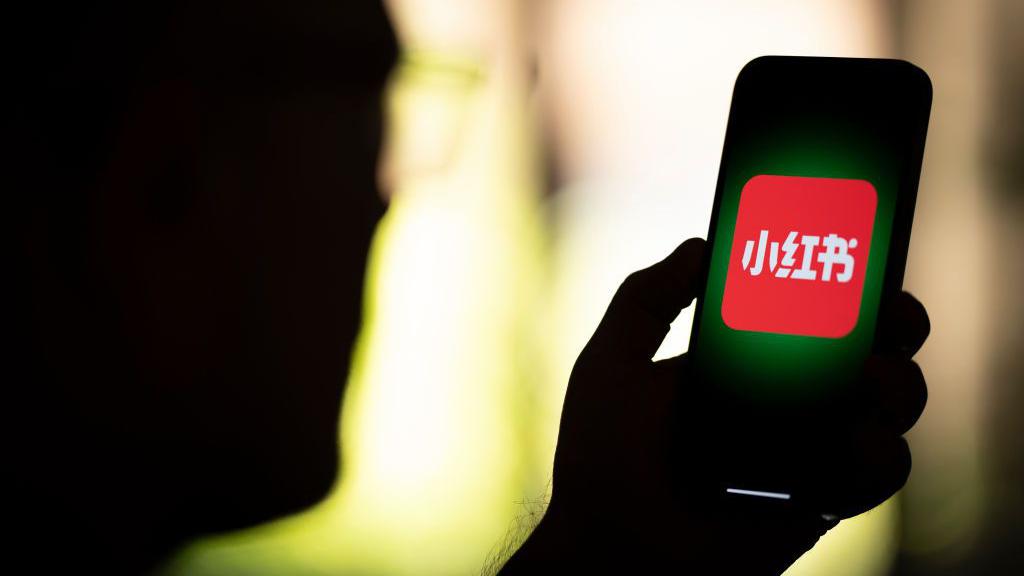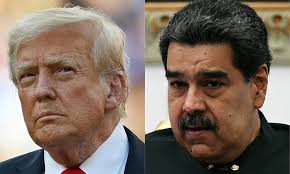Business
Germany’s $2 Billion Bitcoin Holdings Spark Investor Concerns Amid Selloff

For weeks, Germany’s government has been offloading hundreds of millions of dollars worth of bitcoin, causing significant concern among cryptocurrency investors and contributing to a sharp selloff in the market. Last month, the Federal Criminal Police Office (BKA) began selling bitcoin from a massive haul seized from a now-defunct movie piracy website.
In June, the BKA sold 900 bitcoins, worth approximately $52 million. Last week, an additional 3,000 bitcoins, valued at around $172 million, were sold. On Monday, German police sold a further 2,739 bitcoins, equating to $155 million worth of the cryptocurrency. These substantial sales have coincided with a dramatic drop in bitcoin’s price, which fell below $55,000 on Friday, its lowest level since February 2024. The entire crypto market saw a significant loss, shedding over $170 billion in combined market capitalization in a 24-hour period.
Germany’s bitcoin sales aren’t the only issue weighing on the cryptocurrency. The payout of billions of dollars worth of bitcoin from the collapsed bitcoin exchange Mt. Gox to creditors has also put pressure on the market. The trustee for the Mt. Gox bankruptcy estate, Nobuaki Kobayashi, confirmed that repayments in bitcoin and bitcoin cash have begun through several designated crypto exchanges.
Despite the large sums involved, these sales are relatively small compared to bitcoin’s overall token issuance. In January 2024, police in the eastern German state of Saxony seized close to 50,000 bitcoins, worth around $2.2 billion at the time. This was the most extensive seizure of bitcoins by law enforcement in Germany to date. The funds were confiscated from the operators of Movie2k.to and transferred to a crypto wallet owned by Germany’s Federal Criminal Police Office.
Today, the BKA holds approximately 32,488 bitcoins, valued at roughly $1.9 billion. However, not everyone agrees with the government’s decision to sell its bitcoin holdings. Joana Cotar, a member of the German Bundestag, argued that the government should hold bitcoin as a “strategic reserve currency” instead of selling it. Cotar has reached out to German Chancellor Olaf Scholz, Finance Minister Christian Lindner, and Saxony Minister President Michael Kretschmer, calling the decision to sell bitcoin “not sensible” and “counterproductive.” She has invited these officials to a lecture by prominent bitcoin influencer Samson Mow on October 17 in Berlin to discuss the matter further.
Business
Trump Says Venezuela Will Hand Over Up to 50 Million Barrels of Oil to US After Political Transition

US President Donald Trump has announced that Venezuela will “turn over” between 30 million and 50 million barrels of oil to the United States, following a military operation that removed President Nicolás Maduro from power and ushered in an interim administration in Caracas.
In a statement posted on his Truth Social platform on Tuesday, Trump said the oil — valued at about $2.8bn (£2.1bn) at current market prices — would be sold at full market value, with the proceeds placed under US control. He added that the funds would be used to benefit both the Venezuelan people and the United States.
“I am pleased to announce that the Interim Authorities in Venezuela will be turning over between 30 and 50 MILLION barrels of high-quality, sanctioned oil to the United States of America,” Trump wrote. “This oil will be sold at its market price, and that money will be controlled by me, as President of the United States of America, to ensure it is used to benefit the people of Venezuela and the United States.”
The announcement came a day after Delcy Rodríguez, formerly Venezuela’s vice-president, was sworn in as interim president. Maduro has been transferred to the United States, where he is facing long-standing drug-trafficking and weapons-related charges.
Trump also said the move marked the beginning of a broader economic reset for Venezuela, predicting that the US oil industry would be fully operational in the country within the next 18 months. He added that he expected major international investments to flow into Venezuela as stability returns and sanctions are restructured under the new political arrangement.
“This is the start of something very big,” Trump said earlier this week, arguing that Venezuela’s vast energy resources could once again be developed at scale with international backing and modern infrastructure.
The proposed oil transfer has drawn strong reactions internationally. China, which has been Venezuela’s largest oil customer in recent years, criticised the announcement and objected to reports that the United States is seeking exclusive access to Venezuelan crude. Beijing said it opposed any arrangement that sidelines existing commercial partners.
Despite the criticism, US officials have framed the development as a pathway to economic recovery for Venezuela after years of sanctions, declining production and political isolation. Supporters of the plan say the controlled sale of oil could provide immediate financial relief while laying the groundwork for longer-term reforms.
Venezuela holds the world’s largest proven oil reserves, but output has been severely constrained in recent years due to underinvestment, infrastructure decay and international sanctions. Trump’s administration argues that renewed engagement with US energy firms and access to global markets could help restore production and stabilise the country’s economy.
Global oil markets reacted cautiously to the announcement, with prices easing slightly amid expectations of additional supply, though analysts noted that the volumes discussed remain modest relative to total global consumption.
Business
Gold price rises after US captures Venezuela’s Maduro

Global financial markets reacted swiftly after the United States captured Venezuelan President Nicolás Maduro, with investors moving to position themselves amid heightened geopolitical uncertainty and expectations of shifting economic dynamics.
Prices of precious metals rose sharply as market participants sought the relative safety of so-called safe-haven assets. Gold climbed by about 2.4% to $4,433 (£3,293) an ounce, reflecting increased demand from investors looking to protect portfolios against global risk. Silver also recorded strong gains, rising by 4.9%, underlining a broader move into defensive assets during early trading.
Defence stocks across Europe advanced in response to the weekend’s developments, as investors anticipated the possibility of higher military spending by governments reacting to changing geopolitical realities. Analysts noted that such shifts often benefit defence firms in the short to medium term, contributing to the positive momentum seen in the sector.
Oil markets, by contrast, were more measured. Crude prices fluctuated in early Monday trading as investors assessed whether Washington’s intervention in Venezuela could materially affect global supply. Brent crude edged up just 0.5% to $61.06 a barrel, with analysts pointing out that ample global supplies were likely to cushion any potential disruption from Venezuela.
Despite the relatively stable oil price, energy stocks — particularly in the United States — showed notable strength. Shares in US oil companies rose in premarket trading on expectations that American firms could gain greater access to Venezuela’s vast oil reserves. Chevron, currently the only US company operating in the country, saw its shares jump by more than 7%, signalling investor optimism about future opportunities.
US President Donald Trump has openly stated his intention to tap into Venezuela’s significant oil wealth following the seizure of Maduro. He said the United States would “run the country until such time as we can do a safe, proper and judicious transition”, comments that markets interpreted as a signal of potential policy shifts with long-term economic implications.
Business
US TikTok Users Migrate to RedNote as Ban Deadline Approaches

With a potential TikTok ban looming in the United States, many of the app’s 170 million American users are flocking to the Chinese platform RedNote. Dubbed “TikTok refugees,” these users have propelled RedNote to the top spot on Apple’s US App Store as of Monday.
RedNote, known in China as Xiaohongshu or “Little Red Book,” boasts approximately 300 million monthly users and combines features similar to TikTok and Instagram. It is particularly popular among young urban women in China, Taiwan, and other Mandarin-speaking regions, offering a platform for exchanging lifestyle tips on topics ranging from fashion to relationships.
The app’s growing popularity comes as the U.S. Supreme Court prepares to decide on a law requiring TikTok to sell its U.S. operations by January 19 or face a ban. TikTok has refused to sell, arguing that such a move would violate the free speech rights of its users.
RedNote has embraced its influx of U.S. users, with 63,000 posts tagged “TikTok refugee” providing guidance on navigating the platform and learning basic Chinese phrases. One U.S. user humorously wrote, “To our Chinese hosts, thanks for having us—sorry in advance for the chaos.”
Despite its warm reception, RedNote is not without controversy. Critics point to censorship concerns, particularly regarding criticisms of the Chinese government. Additionally, public officials in Taiwan are restricted from using RedNote due to perceived security risks associated with Chinese software.
As U.S. users join RedNote, some Chinese users have joked about being labeled “Chinese spies,” referencing U.S. officials’ concerns over TikTok’s alleged ties to Chinese government surveillance. However, RedNote has distanced itself from political associations, stating that its name does not reference Mao Zedong’s famous “Little Red Book.”
-

 News6 days ago
News6 days agoTrump Issues Strong Warning as Global Attention Focuses on Iran’s Unrest
-

 News7 days ago
News7 days agoTwo people confirmed dead in clashes between protesters and security forces in Iran
-

 Sports6 days ago
Sports6 days agoJohnson Embraces New Chapter at Crystal Palace After Record £35m Switch
-

 News6 days ago
News6 days agoTeenagers Among the Missing as Swiss Bar Fire Tragedy Unfolds
-

 Sports6 days ago
Sports6 days agoVenus Williams Makes Historic Australian Open Return at 45 After Receiving Wildcard
-

 News5 days ago
News5 days agoSwiss Prosecutors Move to Ensure Accountability After Crans-Montana Fire Tragedy
-

 Sports4 days ago
Sports4 days agoTyson Fury Confirms Another Comeback to the Ring after retirement
-

 News5 days ago
News5 days agoTrump Promises Clarity After US Operation in Venezuela











